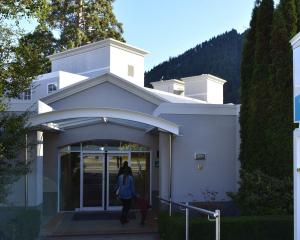
Fred van Brandenburg, along with fellow developer Warwick Goldsmith, designed the Hawthorn development in 2000, but the two later fell out over issues concerning proposed water features.
"Warwick decided it would be best to reduce the amount of ponds. I wanted the ponds as per the entire design ... so to cut a long story short, we parted ways on this matter ... It remained my vision right along until I was proven wrong ... but it turns out I was right after all," Mr van Brandenburg said.
He said both developers, who bought half of the property each, approached the Queenstown Lakes District Council (QLDC) to address the issue, and the council then made its own legal interpretation on the whether the ponds were required.
"It was clear the conditions of the consent needed interpretation and it was interpreted that the ponds were not compulsory," said Mr van Brandenburg.
"The council had a second chance of clearing that up when the variation to allow the separation came out ... very late in the piece, certainly well after I'd been seeking clarification, council decided to get their own declaration and it's taken this long to come out."
When the Otago Daily Times spoke to him this week, he said everyone was surprised when the QLDC last year sought the Environment Court clarification which now means the ponds have to be developed.
"In the decision, the QLDC state that the error of interpretation cannot be solely put at their feet. I find that extraordinary of course, because who else's interpretation can you rely on? Finally, they interpreted it themselves and interpreted an error in hindsight."
He also did not agree with Judge Harland's comments that the developers should have themselves sought a declaration.
"...why would you do that when QLDC has already made their interpretation and the matter had already come to an end? For them to revisit it later on took everyone by surprise ... their solicitors had actually told Warwick that he was right."
Mr van Brandenburg said that when he was approached by prospective purchasers of his half, all documentation was available to them to carry out due-diligence work, including conditions of consent and the interim decision Judge Harland went back to.
"Both of them were available to the purchasers and at no stage did I ever say ponds were not required - that would have been ridiculous for me to say that ... "
He said once he sold the properties in May or June last year through Ray White, they were out of his hands, but understood his purchasers were continuing with their development and had got their landscaping plan approved












